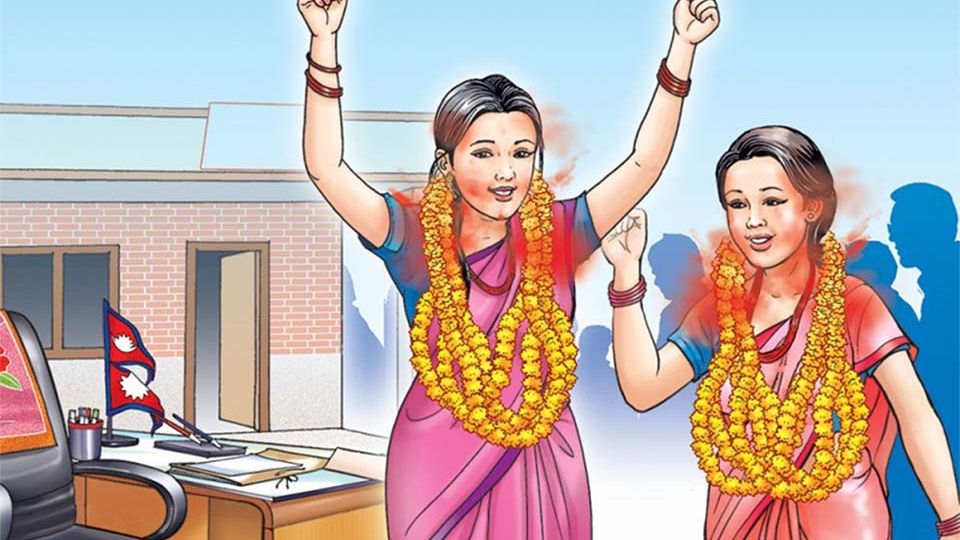July 31, 2024
KATHMANDU – The new coalition government, led by Prime Minister KP Sharma Oli, faced a huge public backlash when it appointed only two women and not a single Dalit in the 22-member Council of Ministers. The same government, however, garnered praise in a matter of days when Prime Minister Oli appointed Lila Devi Badtaula as the Nepal government’s first female Chief Secretary.
While undeniably historic in a country where men are at the forefront of leadership positions, it is difficult to ignore the political context surrounding Badtaula’s selection, which came amid a public outcry over the severe underrepresentation of women in the Cabinet. Her appointment at the end of her career and only when former chief secretary Baikuntha Aryal was suspended—outgoing Prime Minister Pushpa Kamal Dahal had appointed Badtaula an acting chief secretary on July 15—is suggestive of the disregard for having women in top positions when men are around. This raises questions about whether Badtaula’s promotion was no more than a tactical move to quell public discontent.
The prime minister, silent about the biases in Cabinet, boasted on Facebook on Saturday, “I saw many friends writing about Nepali women who have reached high leadership positions on social media yesterday. I am also pleased with these four coincidences that became possible under my positive initiative”. The pictures showed the first female President, Bidhya Devi Bhandari; the first female Chief Justice, Sushila Karki; the first woman speaker in the House of Representatives, Onsari Gharti; and Badtaula—all of whom were appointed during Oli’s government leadership at different times. We also have another unforgettable name Sewa Lamsal (the first female foreign secretary), at present.
The world is forging ahead towards gender inclusivity, bringing more women to the fore, be it in politics or administration, and Nepal also seems somewhat committed to it. The country has significantly improved women’s political representation, who now occupy 91 seats in the 275-member federal parliament. And apart from politics, as per the Department of National Personnel Records, out of 85,513 civil service employees, 20.64 percent are female; seven are secretaries besides the chief secretary.
Even so, genuine gender equality and inclusion is far from ensured. These seemingly “historic” achievements, each carrying the tag “the first woman,” however, fail to represent a whole lot of Nepali women. It is uncertain whether more women will consistently fill the positions left by their ‘female firsts’. As concerning is the exclusion of women from marginalised communities in the top roles, where the Khas-Arya dominate.
Things won’t improve much unless more women are elected through first-past-the-post or direct elections—in the 2022 elections just nine women were directly elected—and unless women stopped being played as token cards. And this will never come without political leaders’ willingness to change. As men dominate Nepali politics, women are “given” positions.
Tokenism will never lead to women’s empowerment and equality; it will in fact prove detrimental to the realisation of our gender-equal dreams. True gender equality requires more than symbolic gestures; it demands substantive change in our behaviour in how we treat women both at home and in public positions. As of yet, political positions are seen as something that only men can handle, and women are largely sidelined or dismissed. Because of this, not many women aspire to be politicians or top administrators. This structural discrimination against women undermines the constitutional spirit of equality of opportunity for people of all genders and socio-economic backgrounds. Not only is this immoral but also illegal.


